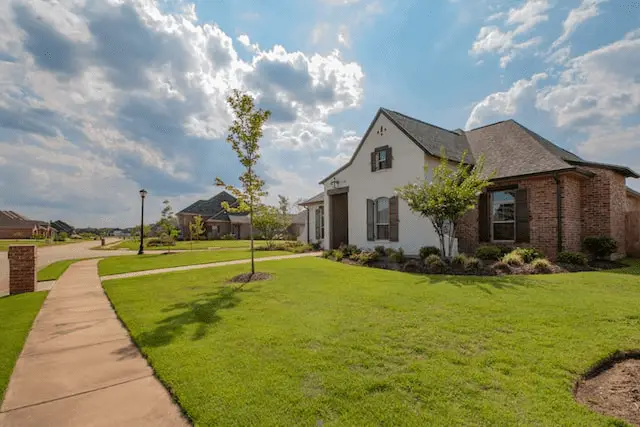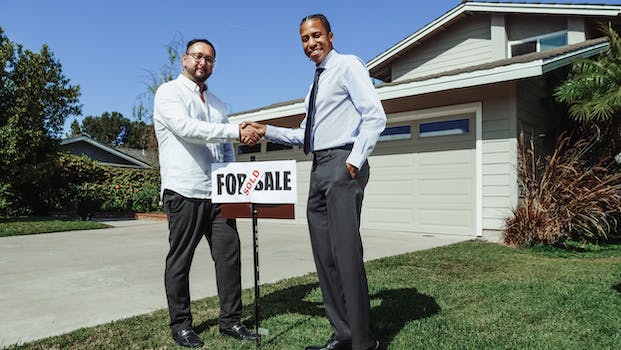
Introduction
You’ve decided to buy or sell a home. You may ask yourself if you need a real estate agent, and if so, how do you find the right one? Here’s how:
Get referrals from people you trust.

It can be hard to know where to start when you’re looking for an experienced real estate agent. One of the best ways is by getting referrals from people you trust. If you have friends or family who recently sold their home, ask them if they would recommend the agent they worked with. Talk to neighbors and colleagues who have recently bought or sold a home.
Like any other profession, real estate agents have a network of professionals they trust and respect. By asking your trusted sources for recommendations, you can find an agent who best fits with the people you know.
You can also ask your lawyer or accountant, who can refer you to someone who handles properties similar to yours in terms of value and complexity. Your bank manager may also be able to recommend someone.
Last but not leastly (I made up this word 😊), contact your financial advisor, who has probably worked with hundreds of clients over the years – he should have some suggestions as well!
These are all people you’ll want to become familiar with during your home-buying journey.
It is important that you ask around because finding the right real estate agent isn’t always quick and painless.
So, note what people say when recommending one particular agent or broker. When it comes time for your own house Sale/purchase, your time researching will hopefully pay off!
Contact your local board of REALTORS®.
If you are looking for a real estate agent, contact your local board of REALTORS®. REALTORS® is the largest group of real estate professionals in the US.
Not all real estate agents are also REALTORS, but most are. They may have a referral service to help you find an agent who meets your needs. If they don’t have one, ask your friends and family if they know anyone in the business.
Research specific real estate brokerage websites
If there’s a reputable real estate brokerage in your area, you can view their agents and that agent’s online presence and choose a few potential agents to reach out to.
Be specific with your criteria.
Before you start looking for a real estate agent, make a list of your criteria. It’s important to be specific, so you don’t waste time with agents who are not a good fit for you. If finding a great location with a high property value is important, be sure to list the areas where you would like to live and the neighborhoods that interest you.
As well as location, name your desired price and number of beds and baths. Keep in mind how much money you want to spend on your home as well as what type of property will meet your needs (apartment or house). Be realistic when considering these things so that when an agent presents properties, they won’t seem out of reach.
The last thing a realtor wants is a client who doesn’t put an offer on a home that perfectly meets their criteria.
So when you explain your criteria, make sure it’s what you want and that you’re ready to place an offer when you find it.
Ask how many houses they’ve sold
When comparing real estate agents, consider how long they’ve been in business in your area.
In addition, ask how many real estate transactions they’ve completed. More deals under their belt generally mean they have better negotiating skills. Once you ask 3-4 agents, you’ll start to understand what’s high or low.
Is the agent representing both the buyer and the seller? If so, you can contact a listing agent and ask if they would like to be your buyer’s agent as well.
Interview multiple agents to find the best match.
 Upper on a Budget" class="wp-image-8545"/>
Upper on a Budget" class="wp-image-8545"/>In order to make sure you’re getting the best match, it’s important to interview multiple agents. Before meeting with each agent, take some time to prepare a list of questions.
What is your process for selling a home as a seller’s agent?
How do you decide what price listing is reasonable?
How does the initial meeting work? Do we meet with a team or just you? What happens during those meetings, exactly?
What kind of advertising will be used (brochures/website/internet/other)? How often are they updated or changed? Who pays for these materials?
Are there any other costs associated with this process that we should know about upfront, so they don’t catch us by surprise afterward (for example, legal fees)?
If possible, have a friend or colleague accompany you during the interviews so they can give feedback on which agent they think would be most helpful for you.
Before signing anything official, do one last round of research into his/her background and reviews from other clients (if possible).
Make sure they’re licensed with a reputable broker
If you’re looking for a real estate agent, it’s important to check their credentials.
Ask to see the agent’s real estate license. A license will allow them to provide services as a real estate broker or salesperson in the state where they practice. In some states, this also allows them to represent buyers and sellers as dual agents or limited dual agents.
Ask if they work alone or have an assistant.
If you want to know if the agent works alone or has an assistant, ask. If they are able to meet with you without an assistant, they will be more attentive to your needs and can schedule convenient times for appointments.
Chances are, if you’re buying your first home, you’ll be working with a junior agent who has only been a licensed agent for 1-2 years and won’t have an assistant.
This is a good way of knowing how senior your agent is.
Find an agent with experience in your area.
Find an agent who has experience in your area. If you are trying to sell a house in Manhattan, it’s best to find an agent who is familiar with the market and has sold properties like yours before.
Find an agent with experience with the type of buyer you are trying to attract (i.e., first-time homebuyers). Do they also work as a buyer’s agent and have a list of interested buyers?
Do you need an agent experienced with foreclosures, short sales, and new homes?
If you want to buy a home in foreclosure, short sale, or new development, make sure the real estate agent you choose has experience in these areas.
A foreclosed property is one where the owner has lost their home. The lender will take possession of it and sell it at auction for less than what’s owed.
A short sale is when a homeowner sells their home for less than the amount owed by selling to their mortgage company (known as a lender). They then agree to pay off any remaining balance over time without interest charges.
New developments are properties built by developers within the past three years. The first two years of ownership can be challenging because there may not yet be amenities nearby; however, if convenience isn’t as important, then these properties may offer better value overall due to lower prices compared with resale homes which tend to be more expensive.
Find out how they’ll market your home.

As with any business relationship, you should always have a plan. Before signing with an agent, make sure they have a strategy for marketing your home. How will they get the word out about it? How will they get people in to see it? What kind of marketing materials do they use to sell homes like yours (or better yet, what are their plans for using these materials)?
A good agent will have a clear and detailed plan of action for getting your home sold. They should be able to explain how they’ll get the word out about your property and how they’ll leverage their connections in the local market (both online and offline).
Find out how they will negotiate offers.
Find out how they will negotiate offers. Will they negotiate on your behalf? If so, what is their strategy? How will they do this, and how often will they contact the other party to negotiate with them?
Also, ask if they have preferred negotiation tactics when dealing with sellers or listing agents. You want an agent willing to fight for your best interests and protect you from buyers who may try to lowball their offer at the last minute.
Ask what the fair market value of your house is.
Ask the agent how much they think your house will sell for, and find out what they are Basing that on.
A good real estate agent should be able to identify the price range for your home and explain how they arrived at their estimate.
They should also know what comparable homes have sold for in your area and whether yours needs some finishing touches or not.
When buying, choose an agent that looks at the real estate market from your perspective.

A good real estate agent will look at the market from your perspective. That means they’ll understand what you can afford, where you want to live, and what type of home you are looking for.
A good agent will also have an understanding of both the local area and general real estate trends in order to help their clients find homes that fit their needs.
Hire an agent who can be available to show you homes when you want to see them.
When you meet an agent, it’s important to find out if they’ll be available to show you homes when you want them.
If the agent cannot be on your schedule, they may not be able to show you all the homes that would be a good fit for your needs.
An agent with other clients too may not get back to you in a timely manner either.
Select a real estate agent who takes digital marketing seriously.
If you’re looking for a real estate agent, ensure you’ve got one who takes digital marketing seriously.
It’s not enough to be good at the traditional methods of getting your message out there—you’ve got to be on top of new trends, too. And that means using social media, blogs, email marketing campaigns, and more to advertise your listings in ways that are relevant and interesting to potential buyers.
A good real estate agent can create a digital presence for you that is consistent with your personal brand but tailored to the needs of potential buyers. They should also be able to help with the design of your website and any other digital platforms you use as part of your marketing strategy.
Real estate is local, so choose an agent who knows the area well.
When it comes to buying property, local knowledge is everything.
A good agent will know all about your specific neighborhood—what types of properties are available there and how much they cost; where the best schools are located; which neighborhoods are most likely to be gentrified next year; if there’s going to be any construction near you soon…the list goes on and on!
A good agent will use this knowledge not only when helping you find a house but also when negotiating with other parties involved in the home-buying process (like mortgage brokers).
You don’t have to go with the first real estate agent you find
The best real estate agent most likely won’t be the first real estate agent you contact. But that’s okay because plenty of other real estate agents are ready and willing to work with you.
When looking for a real estate agent, it is important that you find one who is right for you and your needs. Try interviewing multiple agents to select the best fit for yourself.
Conclusion
We hope this article has given you some ideas about how to find the perfect agent for your needs.
Leave a Reply